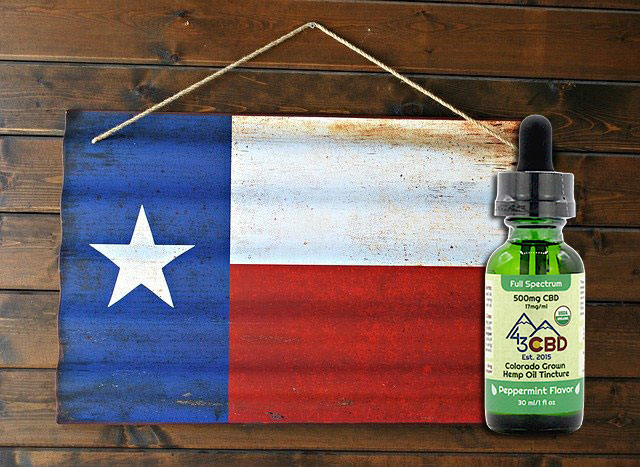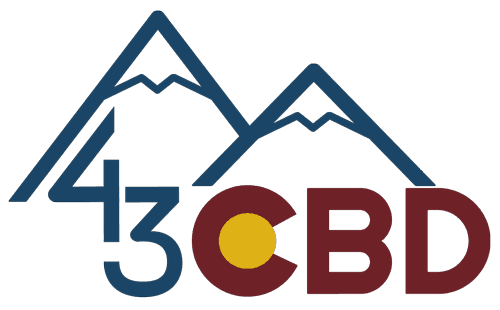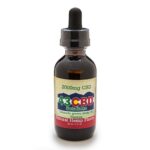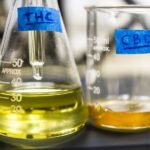
Currently, the CBD oil market is bursting apart at the seams — it’s put into coffee, smoothies, and other edible confections at local cafes, health food stores, and even gas stations.
With that, a sizable chunk of new sales in 2019 can be attributed to the June 10th signing of House Bill 1325; making hemp-derived CBD oil (containing less than 0.3% THC) legal. More importantly, this important piece of legislation excludes hemp from being classified as a controlled substance, which has been a boon for cannabis industry professionals.
And while you can easily find “CBD” products, it is still a buyer beware trade. Technically, anyone in the state of Texas can legally sell CBD, but unless they’re an independently tested company, there are no guarantees the product you’re consuming actually contains any CBD. Not only that, but the loose licensing and labeling regulations make quality control questionable, and the long list of advertised health benefits CBD enthusiasts claim it cures aren’t backed up by the U.S Food and Drug Administration.
This leaves us wondering what the future of CBD in Texas will look like in the years to come, how individual communities plan on keeping their citizens safe, and what this all means in terms of CBD’s legality in the Lone Star State.
If you’re not sure about where to start, we’ve compiled this informative guide to help you decipher any confusion about CBD oil’s legal status in the state of Texas, and how it affects you.
Let’s begin!
Is CBD Oil Legal In Texas?
The reason there is so much confusion about CBD and Texas law is that after the 2018 Farm Bill, some states banned CBD altogether, and several others like Texas neglected to establish their own regulations for how it wanted to utilize and sell it. It wasn’t until Governor Greg Abbott signed the previously mentioned House Bill 1325 that a green light was officially given for hemp-derived CBD oil to be used and sold in the state of Texas without a prescription.
This means all Texans (including children) can legally sell or buy CBD oil that contains less than 0.3 percent THC, and a foundation has been established which allows lawmakers to discuss and determine what hemp cultivation, legislative, and sales regulations are best practice and which ones aren’t.
What’s the Federal Government Take on CBD Oil?

Hemp has always had a turbulent relationship with the United States — but even more so with Texas. When it was first imported from Europe, hemp was completely legal and became a staple of the textile industry; being used to make clothing, rope, sacks, and to seal wooden ships. It wasn’t until the early 20th century that the war on hemp was waged because of its close relation to marijuana; resulting in both hemp and marijuana being criminalized until the passing of the 2018 Farm Bill.
This allowed hemp to be legally sold and used nationally, and the Agriculture and Improvement Act of 2018 re-classified hemp and hemp products as uncontrolled substances with one catch: all hemp strains must be low-THC strains or strains that contain less than 0.3 percent THC.
That said, any CBD or hemp products that contain more than 0.3 percent is illegal both federally and in the state of Texas, and is only permitted in states where recreational or medicinal marijuana is legal.
What About Epileptic Patients?
Texas state law allows anyone to consume CBD oil that contains less than 0.3 percent THC— any more than that, and you could be facing a misdemeanor or felony charge. But for epileptic patients wanting CBD oil that has more than the allotted 0.3 percent THC, there is a loophole. That’s right; the Texas Compassionate Use Act signed by Governor Greg Abbot in 2015 allows epileptic patients to use CBD products that contain less than 0.5 percent THC. Any CBD or hemp product containing more than 0.5 percent THC would be illegal for epileptic patients, and one containing more than 0.3 percent would be illegal for all Texas residents.
Law Enforcement And THC Testing

Signing a bill into law and enforcing laws are two completely different things. Truth is, there are still many vague and obscure restrictions in regards to Texas enforcing THC testing and current legislation.
As we established earlier, any cannabis product that contains over 0.3 percent THC is considered marijuana — which is illegal in Texas. However, there are no established guidelines or testing equipment for Texas law enforcement that outline what to do about verifying CBD and THC content; it’s literally your word against the officers’ word. The problem with this is CBD oil and marijuana extracts look and smell extremely similar. You could have a compliant (less than 0.3 percent THC) CBD tincture or oil, but the police officer says its marijuana based on the look and smell. Unfortunately, the only way to know for sure is to test and measure how much THC content each product contains, which isn’t currently possible for Texas law enforcement agents.
For this reason, we don’t recommend driving around with your CBD oil in your car because the officer has no real way of knowing you’re telling the truth — and there’s no real way for you to prove it.
Buyer Beware
Although the Texas Department of Agriculture is wrapping up its final plans for CBD regulation to be approved by the U.S Department of Agriculture, it is still important for Texans to use caution when purchasing their CBD oil. Earlier this year, Houston officers found a number of CBD products contained dangerous synthetic cannabinoids, and NBC Miami uncovered that over 57% of the tested CBD products contained less than half of the CBD it claimed to have on the label.
The best way to make sure you’re buying both a legal and high-quality CBD oil is to check the website for a Certificate of Analysis, or any other type of lab reports from a verified third-party laboratory. This ensures the product you’re consuming isn’t riddled with dangerous toxins and contains the amount of CBD it claims to.
Are Hemp and CBD Oil The Same Thing?
No. Despite the fact that people commonly use these two terms interchangeably — they’re two completely different concepts. Hemp is the plant CBD is extracted from, and CBD oil is the compound extracted and created from the hemp plant. Think of hemp as the chicken, and CBD oil as the egg.
Hemp oil, on the other hand, is made from crushed hemp seeds that are loved for its high vitamin E, omega-3 fatty acid, and protein content. It’s commonly used as a dressing, condiment, and low-heat cooking oil, but unlike CBD oil, hemp oil doesn’t contain enough CBD in it to be used therapeutically in the same manner CBD oil and CBD tinctures are.
Is Marijuana Still Illegal In Texas?

Yes. Most marijuana strains contain more than 15 percent THC, with some testing at 30 percent THC. Since marijuana contains more than 0.3 percent THC — it is still an illegal substance both federally and in Texas. While state laws have the power to govern the residents of a particular state, federal laws govern the entire country and will always trump state laws. When it comes to putting this concept into practice — there is a lot more gray area in terms of enforcement. Frequently, a state will go against federal law and the federal government decides not to enforce or reprimand the state, which is the current situation for states that have legalized marijuana. Until the federal government decides how it will manage marijuana legalization, and as long as the nation’s drug policy remains in limbo— it’s uncertain how things will play out for legal states like Washington, Colorado, and California in the future.
As for Texas, marijuana is illegal, and the buying, selling, or consumption of any hemp or cannabis products containing more than 0.3 percent THC (0.5 percent for epileptic patients) is a criminal misdemeanor or felony. Possession of 4 or 5 ounces of marijuana is a felony and is punishable by up to 2 years in prison, and up to 10 years if you have between 5 to 50 pounds.
The Texas CBD Industry is Booming
This is a monumental and historical time for the CBD industry and Texans alike. The CBD oil market in Texas is growing rapidly and with that, there have been thousands of both high and low-quality products that have flooded on the scene — we just hope our guide has helped give you the knowledge about what to look for, what to avoid, and how to stay out of jail.
To recap, make sure you’re consuming CBD oil that contains less than 0.3 percent THC, and pay attention to where each product’s hemp was sourced, what extraction process was used, and if they are third-party tested. All this information, including lab results, should be featured on the company’s website. All in all, if you do your due diligence and make it a point to do your research and use only the highest-quality CBD products on the market— you shouldn’t run into any problems in terms of potency, purity, or safety.
Buy CBD from a Trusted Company
If you are ready to get started with CBD oil, then choosing a trustworthy business is of utmost importance. At 43 CBD Solutions, it is part of our mission to stay true to ourselves, nature, and to the community.
That is why we ensure that every process from seed to product is fully transparent and why we provide 3rd party lab results. In keeping with our word, we also only use USDA organic CBD oil for our full spectrum products and we are always available to answer any questions or concerns you may have when adding CBD to your daily regimen.
At 43 CBD Solutions, we have many walk-ins from people visiting from Texas. If you are passing through the Colorado area, come to the office and say hello! Ask for Greg and Dontje and they will be happy to help guide you in the right direction for getting started with CBD.



